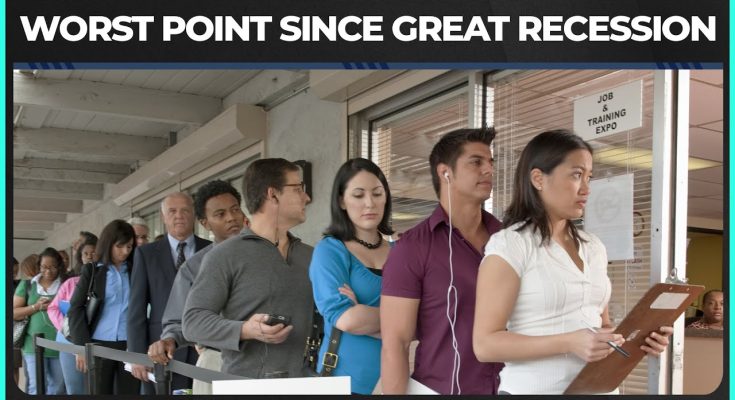As the cost of living continues to rise across the United States, an increasing number of Americans are finding themselves working multiple jobs just to make ends meet. This troubling trend was the focus of a recent discussion on The Young Turks, where Ana Kasparian and John Iadarola broke down the factors driving this crisis and its broader implications for the economy and society.
Why Are So Many Americans Working Multiple Jobs?
The latest data reveals that millions of Americans are juggling two or more jobs, highlighting the financial struggles facing working-class and even middle-class households. Inflation, skyrocketing housing costs, and stagnant wages have created an environment where a single income is often no longer enough to cover basic expenses.
Ana Kasparian pointed out that while politicians and corporate leaders celebrate job growth numbers, they often fail to address the quality of those jobs. Many of the positions being added to the labor market are low-paying, part-time, or lack benefits, forcing workers to take on additional employment to survive. “The American Dream,” Kasparian argued, “is becoming increasingly unattainable for the average worker.”
John Iadarola added that industries such as retail, food service, and gig work have become the backbone of the multiple-job economy. Many of these jobs offer inconsistent hours and low wages, making it nearly impossible for workers to achieve financial stability without supplementing their income elsewhere.
The Impact on Workers’ Health and Well-Being
Working multiple jobs is taking a toll on Americans’ physical and mental health. Studies show that those who work excessive hours experience higher levels of stress, burnout, and sleep deprivation. The constant struggle to stay afloat financially leaves little time for rest, family, or personal fulfillment.
Kasparian noted that the American work culture often glorifies overworking as a sign of dedication and ambition. However, she argued that this mindset is harmful, as it ignores the systemic failures that have made extreme work schedules a necessity rather than a choice. “This isn’t about people wanting to hustle,” she said. “It’s about a broken system that forces them to.”
Iadarola also highlighted how working multiple jobs disproportionately affects marginalized communities, including women and people of color, who are more likely to be employed in lower-wage sectors. This economic reality widens the wealth gap and keeps vulnerable populations in a cycle of financial instability.
What Can Be Done?
The discussion on The Young Turks ended with a call for policy changes that could alleviate the need for multiple jobs. Among the solutions proposed were raising the federal minimum wage, strengthening labor unions, ensuring universal healthcare, and implementing affordable housing initiatives.
While the issue of overworked Americans is not new, the sheer scale of the crisis has become impossible to ignore. Until systemic changes are made, millions will continue to work multiple jobs, sacrificing their health and well-being in pursuit of financial security that remains just out of reach.

